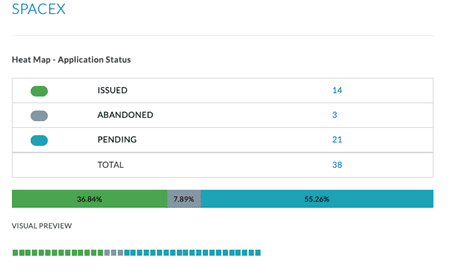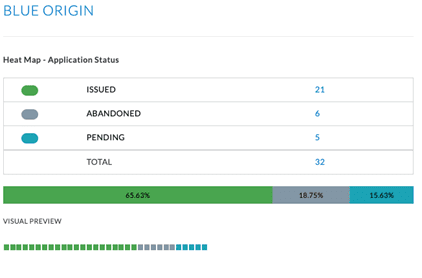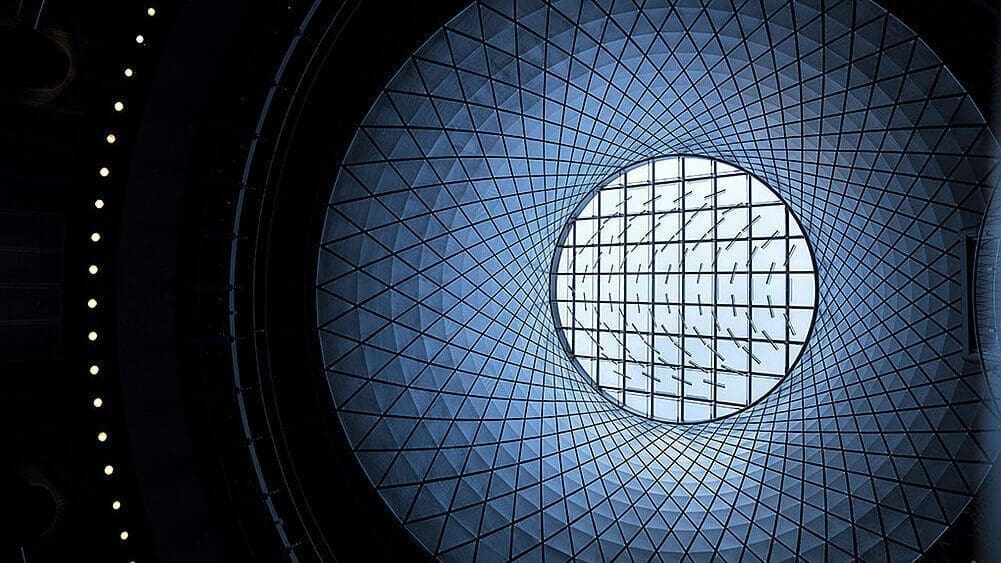Pop Culture Patents: The Modern Space Race

The modern space race looks much different than its predecessor. Rather than a battle among government superpowers, the competition to travel even further into space is now being led by the private sector. Innovative, big-dreaming billionaires have taken the reins and are now in a race to outperform their commercial rivals. These are exciting times resulting in significant technological advancements, and patents have been pursued to protect many of them. Out of pure curiosity, we have used the LexisNexis TotalPatent One® global patent search platform and the LexisNexis PatentAdvisor® patent analytics platform to investigate how inventive these modern space companies have been, and how successful they have been in facing patent authorities around the world.
SpaceX
Founded in 2002 by Elon Musk, Space Exploration Technologies Corp (“SpaceX”) participates in the modern space race with a mission to colonize Mars. While in an ongoing battle against gravity and the hazards within our solar system, SpaceX has remained active in protecting the technologies it develops. Using TotalPatent One®, we have uncovered 47 global patent records that are currently assigned to SpaceX. Twenty-six of them are on record with the United States Patent and Trademark Office (“USPTO”), fourteen with the World Intellectual Property Organization (“WIPO”), and seven with the Taiwan Intellectual Property Office.

SpaceX is performing very well against its USPTO patent examiners and has managed to maintain an 82.4 percent allowance rate. On average, SpaceX patent applications spend two years, two months, and three days in patent prosecution before being either issued or abandoned. SpaceX also averages only 0.9 office actions per patent application, and the most office actions ever been issued for a single SpaceX patent application was two.

For those of you who may be wondering, SpaceX patent applications are most often assigned to USPTO Art Units 2844, 2845, 2636, which focus on patents specific to “Semiconductors/Memory, Circuits/Measuring and Testing, Optics/Photocopying, Printing/Measuring and Testing” and “Communications.”
Blue Origin
Amazon’s Jeff Bezos has been a part of the modern space race since 2000 when he founded Blue Origin, LLC (“Blue Origin”). Unlike SpaceX, Blue Origin’s focus has been on perfecting sub-orbital spaceflight.
Blue Origin has been more active in the patent world than SpaceX, with TotalPatent One revealing 97 patent records – primarily with the USPTO, but also with WIPO, the European Patent Office, and in China, Russia, and Japan. Blue Origin has been granted 57 total patents (in the United States, China, Russia, and Japan), and has 20 currently pending patent applications.

Blue Origin is also performing well against the USPTO. They have managed an 82.4 percent allowance rate, and its patent applications spend an average of 2 years, 10 months, and 18 days in patent prosecution. Like SpaceX, Blue Origin averages only 0.9 office actions per patent application, however, its longest-prosecuted patent application (U.S. App. No. 14/559,777 – SEA LANDING OF SPACE LAUNCH-VEHICLES AND ASSOCIATED SYSTEMS AND METHODS) remained pending for 5.5 years and included 5 office actions, a Request for Continued Examination, and an appeal before going abandoned.

Blue Origin patent applications are most often assigned to USPTO Art Units 3644, 3647, and 3741, which focus on patents specific to “Aeronautics and Astronautics,” “Transportation, Construction, Electronic Commerce, Agriculture, National Security and License & Review,” and “Power Plants,” respectively.
Virgin Galactic
Founded by Sir Richard Branson in 2004, Virgin Galactic take on the modern space race by being more involved in space tourism than exploration. It is also the most mysterious of the modern space race participants because it holds zero registered patents. Its affiliate, Hyperloop Technologies, on the other hand, is listed as an assignee on 157 global patent records. They have filed 75 patent applications domestically with the USPTO, and 89.1 percent of its fully prosecuted USPTO patent applications have been granted. Many of the Hyperloop Technologies patents are related to terrestrial transportation, but it is possible that some of Hyperloop Technologies’ technologies are being utilized by Virgin Galactic.
There is plenty more to learn about space, the modern space race and space related patents. To learn more about these companies’ patent filings, check out TotalPatent One, PatentAdvisor, and the other patent products provided by LexisNexis® Intellectual Property.
Learn more about TotalPatent One.
Learn more about PatentAdvisor.

Need more predictability in the patent prosecution process?
Learn how to develop successful IP strategies and proficiently manage patent applications throughout the entire prosecution process using data-driven insights and advanced analytics.
